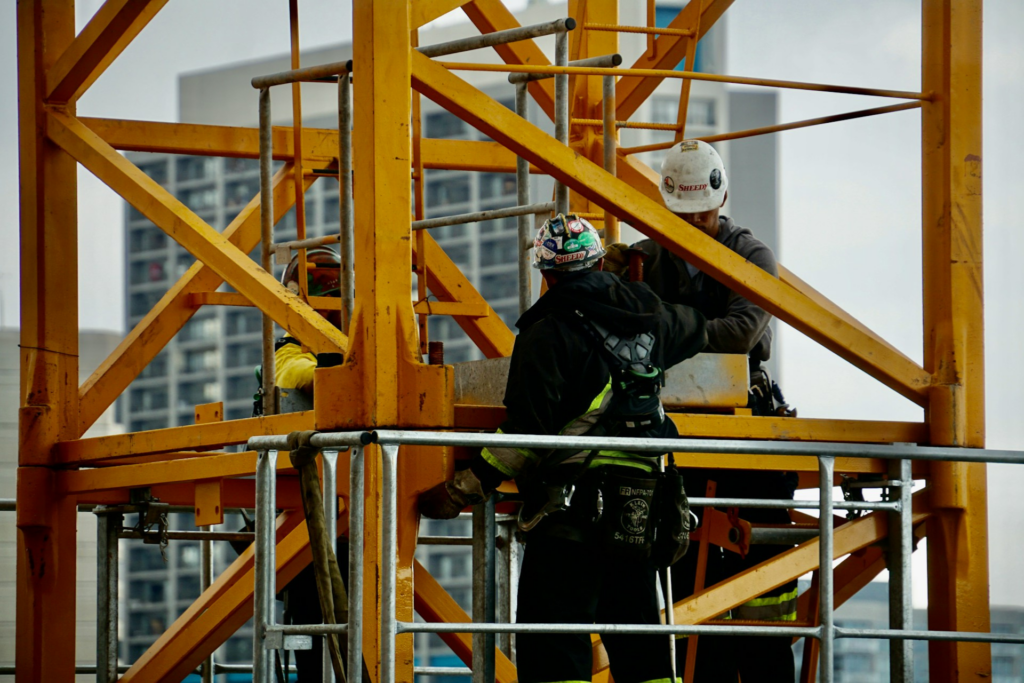Construction management is currently experiencing a rapid period of change. From technological advancements to evolving customer demands, construction firms can’t rest on their laurels. What was accepted best practice for construction management yesterday may soon be old hat. Now, you must know how AI impacts the industry or how to incorporate sustainable building practices — among many other changes. Here’s a look at the emerging technologies and strategic approaches defining the future of construction management and where things are headed.
Prefabrication and Off-Site Construction Methods
Prefabrication — manufacturing building components in a factory — is not entirely new. But what has changed is how it’s used in more and larger projects than prefab houses. Prefabrication and off-site construction methods have made their way into a wide range of project types, and for good reason. Standardizing building products helps streamline the construction process, reduce project times, and minimize waste.
As technology advances, expect to see prefabricated components become more complex, with nearly limitless customization options. Over time, prefabrication and off-site construction will become the method of choice for highly efficient and sustainable buildings. Property owners around these projects will appreciate the sped-up construction time, as modular and off-site construction techniques promise the completion of commercial structures in a fraction of the time required for traditional approaches.
Automation and Robotics in Construction
Automation and robotics are revolutionizing many industries, and construction management is no exception. By automating repetitive and hazardous tasks, construction robots make demolition, excavation, welding, and masonry faster and safer. They also gain efficiency, helping speed projects along.
In the future, you’ll see an increased use of drones and other unmanned vehicles for expensive and time-consuming tasks like site surveying, inspections, and progress monitoring. These robotic helpers will also collect data and generate analytical reports, which will help construction managers identify potential issues before they become a problem and make more informed decisions.
AI-Driven Project Planning and Scheduling
AI is another emerging technology that is rapidly transforming nearly every industry. However, the advancements AI brings to construction management are thoroughly transformative. Machine learning algorithms can analyze years of data to optimize project schedules, identify previously unseen risks, and perform excellent resource allocation. Learning from past projects and external data like weather reports, AI-powered tools remove much of the uncertainty from construction projects, making for more perfectly scheduled and resourced jobs.
Going forward, AI will be used in construction management to enhance collaboration among various project stakeholders. Imagine AI-powered chatbots providing real-time reports to upper management while supporting project teams on the ground. In addition, augmented reality technologies will further enhance remote collaboration, helping leaders from large firms visualize the progress on construction jobs hundreds of miles apart.
Smart Buildings and IoT Integration
In the late 2010s, smart homes became the newest craze. Internet of Things (IoT) devices like smart thermostats and voice-controlled lights were suddenly the must-have additions to digital assistants. It wasn’t long before the concept reached commercial buildings and the construction management industry. Today, IoT devices play a critical role in creating smart buildings and connecting networks of devices and sensors throughout project sites.
Data and analytics will be the next leap forward in this arena. Using shared data, IoT-enabled sensors will optimize HVAC, security systems, lighting, and more. This will reduce energy consumption while creating comfortable, sustainable environments for building occupants. The data and analytical reports will also help construction managers better identify areas for improvement by pinpointing less efficient areas of building projects.
Circular Economy Principles
The environmental footprint of construction management has long been an area of focus and scrutiny. Resource depletion and waste have always been concerns around building projects, with some critics saying the industry was slow to embrace sustainability. Things are now improving, thanks to the industry’s rapid adoption of circular economy principles.
The circular economy aims to reduce waste and maximize resource efficiency via products that can be reused, repaired, or recycled. Construction firms have already embraced sustainable materials, and the prefabrication trend includes designing buildings for disassembly. Circular economy initiatives have already helped the industry have a more positive environmental impact. Over time, this will become standard practice as more resilient and sustainable buildings become the norm.
Takeaway: The Future of Construction Management is Now
It’s true that no industry stays the same. The world evolves, customer demands change, and new technology emerges to disrupt market sectors. Construction management has undergone a convergence of new technologies and innovative approaches, resulting in a series of new trends all at once.
Looking at the industry’s future, it seems the future is now. Between prefabrication, automation, and AI, construction management today looks very different from just a few years ago. But one thing is for sure: things will continue to evolve. Expect to see further advancement in smart buildings, IoT integration, and more sustainable practices in the very near future. To stay on top of the latest trends in a wide range of industries, follow MRINetwork.

Connect with MRINetwork